The Huduma Fellowship Class of 2023 had their first seminar led by a number of distinguished speakers. The three-day seminar focused on shaping personal and situational leadership.
The Role of Public Service in Liberating Our Economies
The first speaker was Mr. Yusuf Kiranda, the Secretary of Makerere University. When addressing graduating Huduma Fellows of the second cohort in November 2022, Yusuf argued that the public sector and public service are essential in all social, political, and economic affairs of human beings. The discussion then highlighted the role of the public service in coordinating the provision of public goods and services and the fact that these services cannot rely on the markets.
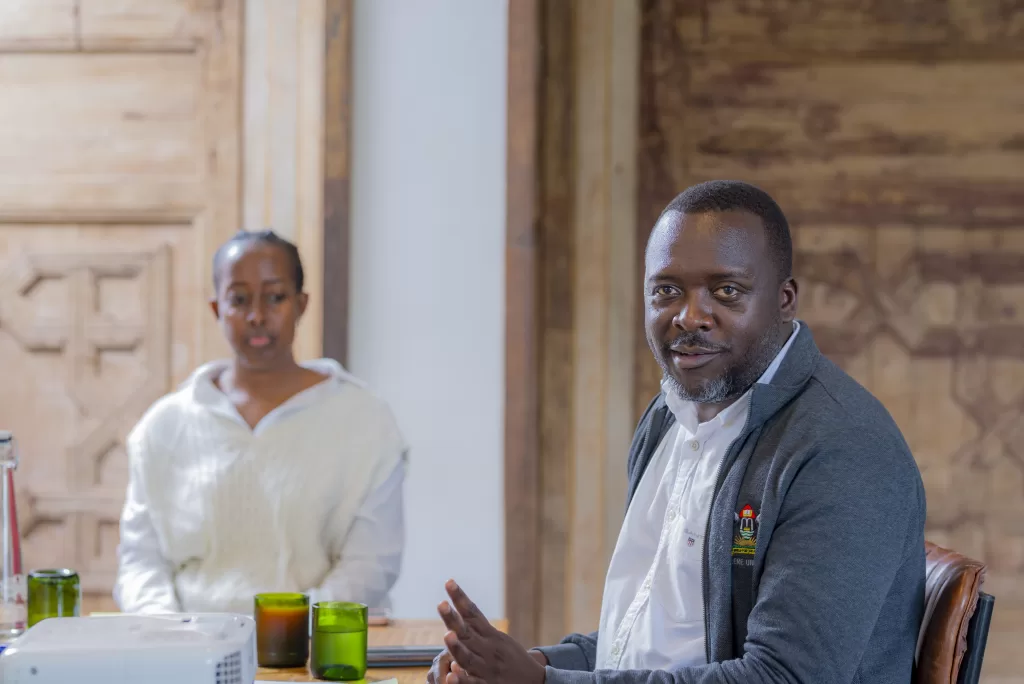
At seminar one of the Huduma Class of 2023, Mr. Yusuf deliberated on the role the public service can play in liberating our economies to ensure that our Countries have the resources required to deliver public goods and services. The economic challenges facing the world today where several nations find it difficult to meet wage obligations for public servants and are failing to provide essential services require us to reflect on why and how Africa should and can reposition itself in the new world order.
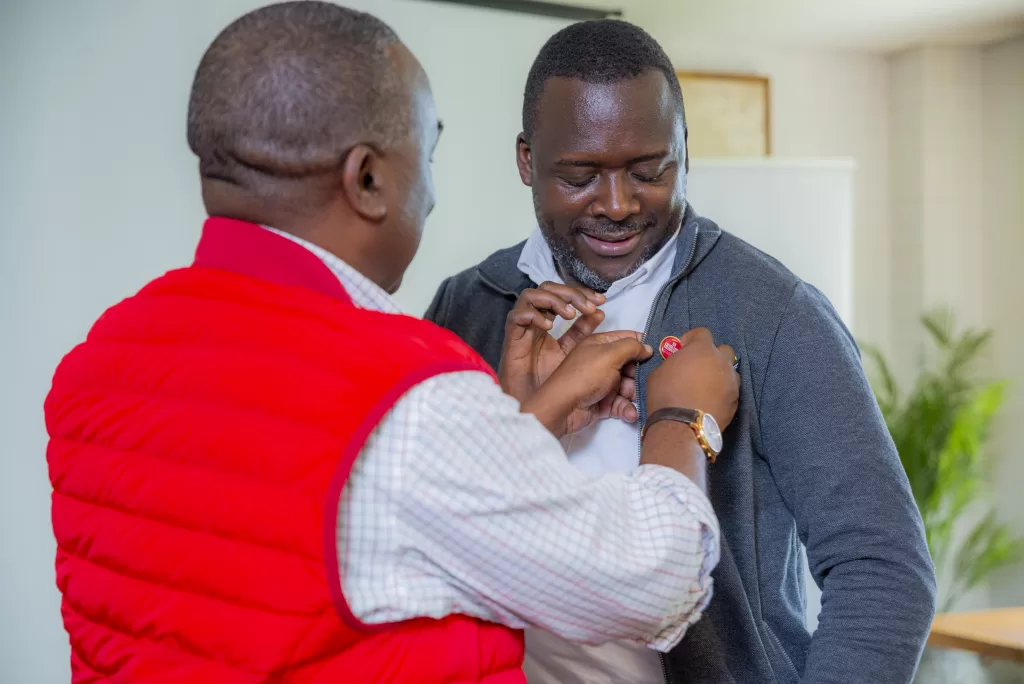
LéO Africa Institute and the Power of Collaboration
The story of the LéO Africa Institute is a testament to the power of great ideas, collaboration, and the courage to see these ideas through. Focused on enabling young and emerging leaders to live fulfilling and impactful lives, the Institute was co-founded by two Aspen Global Leadership Network Fellows Awel Uwihanganye and Magnus Mchunguzi, and a decade ago and has since become influential in building the capacity of socially conscious African youth driving change in their communities.
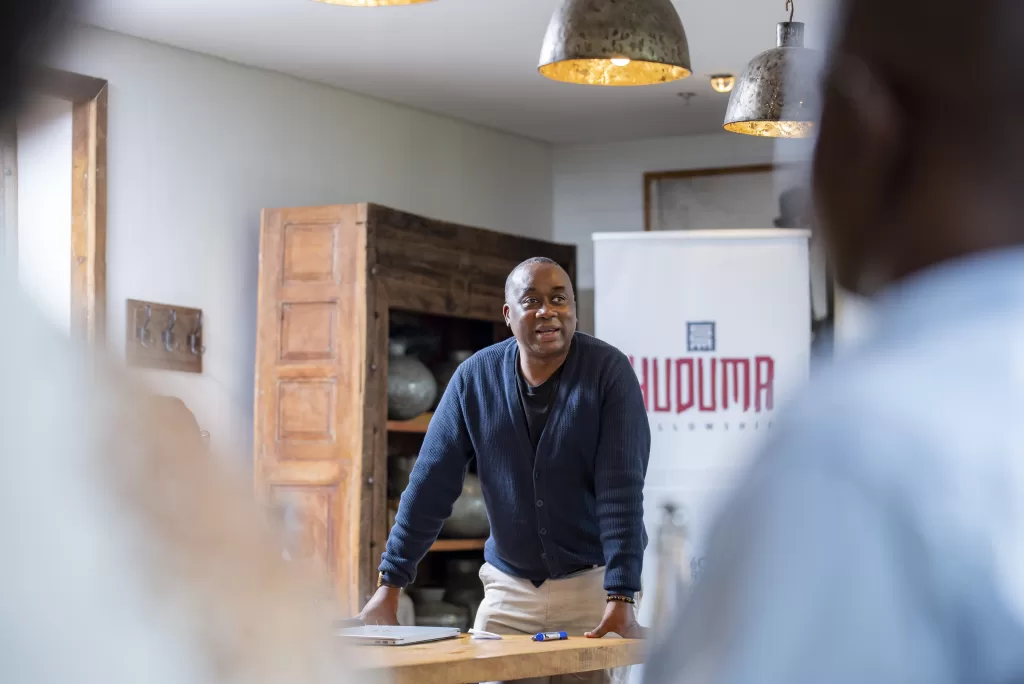
Awel shared with Huduma Fellows the vision of the Institute and why it is important to build a network of thought leaders across the continent. He described what it takes to be a Huduma Fellow and the Fellowship identity that is built off the Adinkra symbol. The Nkyinkyim symbol was chosen as Huduma’s logo because it depicts the twists and turns of life’s journey that require our fellows to have initiative, dynamism, and versatility to survive.
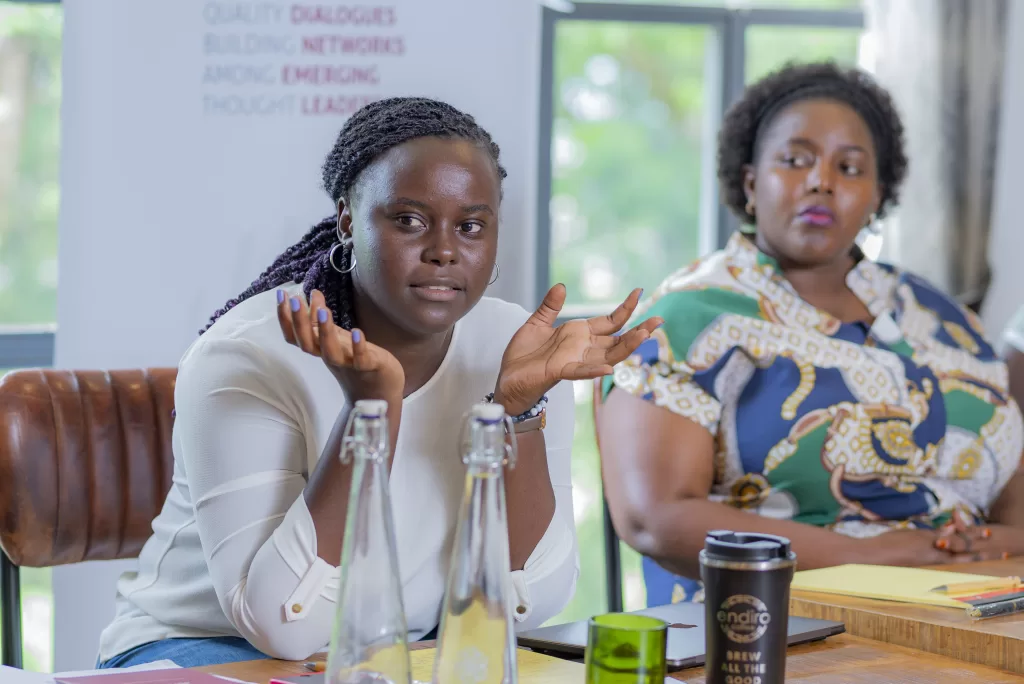
The Konrad Adenauer Foundation’s Commitment to Democracy
The Konrad Adenauer Foundation serves the common good in Germany. Through their work, they contribute towards securing and increasing peace, freedom, and prosperity in Europe and throughout the world.
“We stand for personal responsibility, justice, and solidarity. We are firmly committed to liberal, representative democracy, the rule of law, the social market economy, and European unification,” said KAS Uganda & South Sudan Country Director Anna Reismann when explaining to fellows what the Foundation stands for. “We are guided by the Christian view of humanity. We feel particularly bound by the political legacy of Konrad Adenauer,” she added.
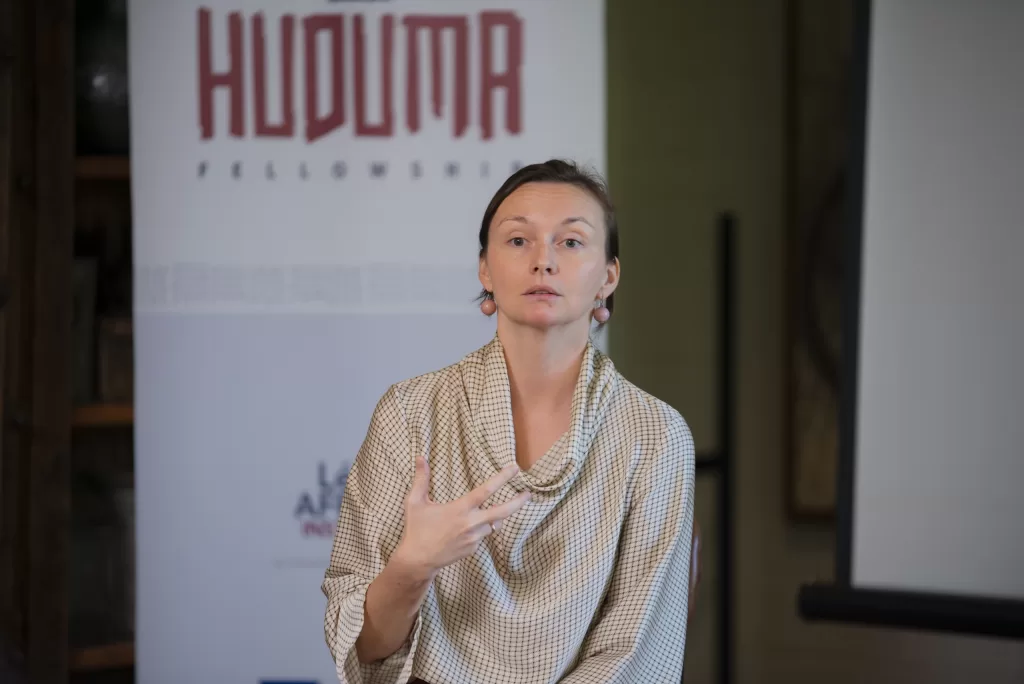
Shaping Personal Leadership
William Babigumira, the Head of Faculty at the LéO Africa Institute and CEO of Pentascope Strategy led a powerful session on Shaping Personal Leadership at the first seminar of the Huduma Fellowship Class of 2022. The session explored a deeper understanding of the leader within oneself, defined the tenets of outstanding leadership, and appreciated the responsibility that comes with it.
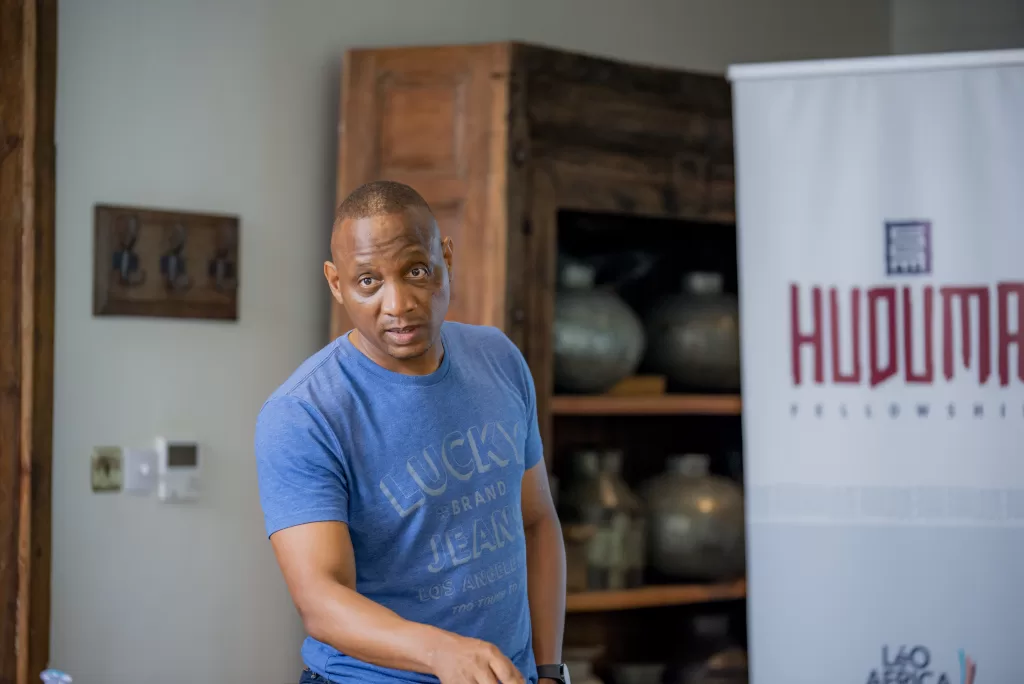
Babigumira asked fellows to reflect on their own leadership journeys. He encouraged them to think about the moments when they had felt most like leaders and to identify the qualities and skills that had helped them to succeed. He then shared his own insights on leadership, drawing on his experience as a business leader and educator.
Ms. Agnes Igoye, a distinguished Ugandan Public Servant and Member of the Faculty, at LéO Africa Institute emphasized the importance of self-awareness and self-reflection for leaders. She argued that leaders need to be able to understand their own strengths and weaknesses, as well as their own motivations and values. This understanding is essential for making sound decisions and building strong relationships with others.
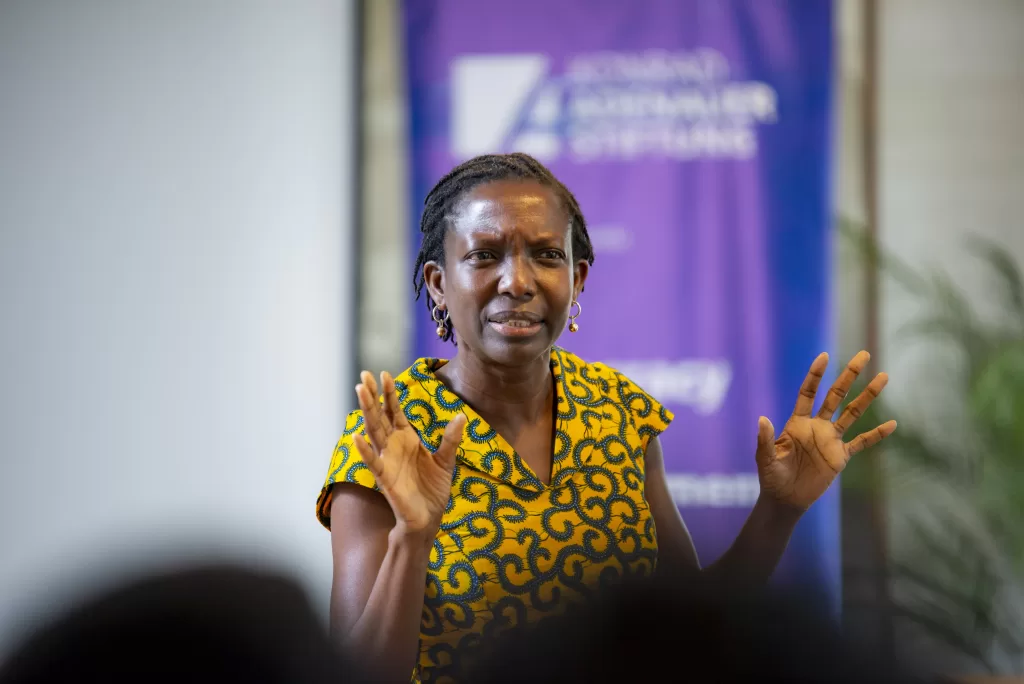
Agnes also stressed the importance of vision and purpose for leaders. She argued that leaders need to have a clear vision for the future and that they need to be able to articulate this vision to others. They also need to be able to inspire others to share their vision and to work towards achieving it.
She challenged fellows not to fall victim to the five P challenges to ethical leadership by Dr. Camillus Kassala, Senior Research Fellow, Eastern Africa Statistical Training Centre; power, property, prestige, and pomposity.
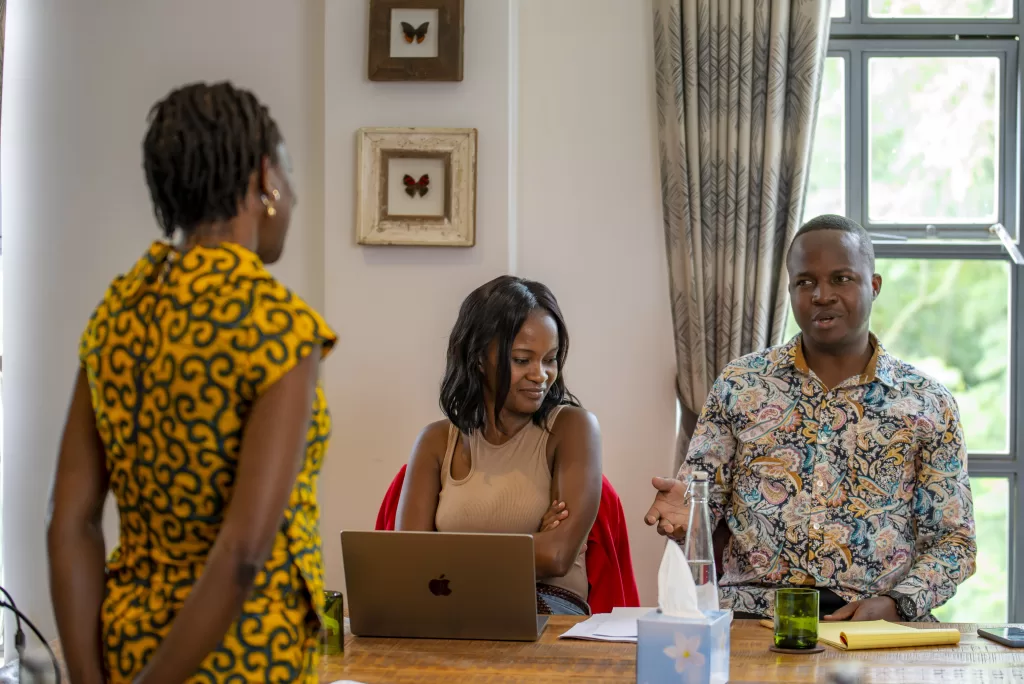
Finally, Anes spoke about the responsibility that comes with leadership. She argued that leaders have a responsibility to their followers, to their organizations, and to the world at large. They need to be accountable for their actions, and they need to use their power for good.
The session was well-received by the fellows, who found Agnes’ insights to be both inspiring and practical. They left the session with a deeper understanding of what it means to be a leader, and with a renewed commitment to using their leadership skills to make a positive impact on the world.
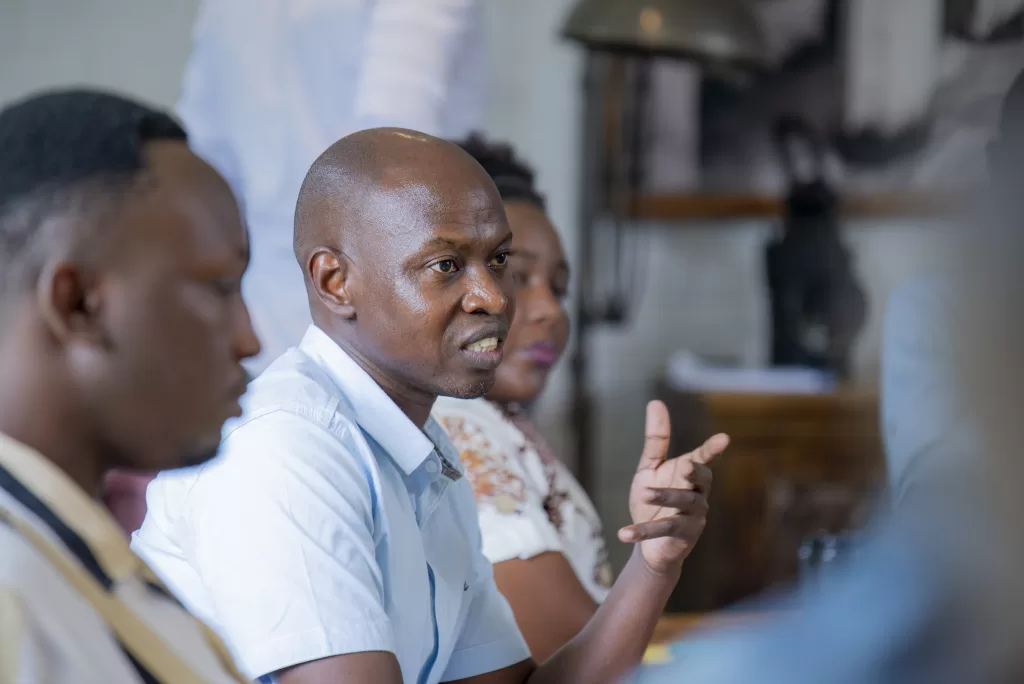
Situational Leadership and a personal inventory
Mr. Bright Malere, a project development, monitoring and evaluation, negotiation, public policy specialist, and member of faculty at the LéO Africa Institute spoke about the importance of building capacity to exercise values-based leadership. He emphasized the importance of transformational, authentic, and ethical leadership.
Transformational leaders are generally energetic, enthusiastic, and passionate. They inspire positive changes in those who follow them. Dimensions of transformational leadership include charismatic leadership, inspirational motivation, intellectual stimulation, and individual consideration.
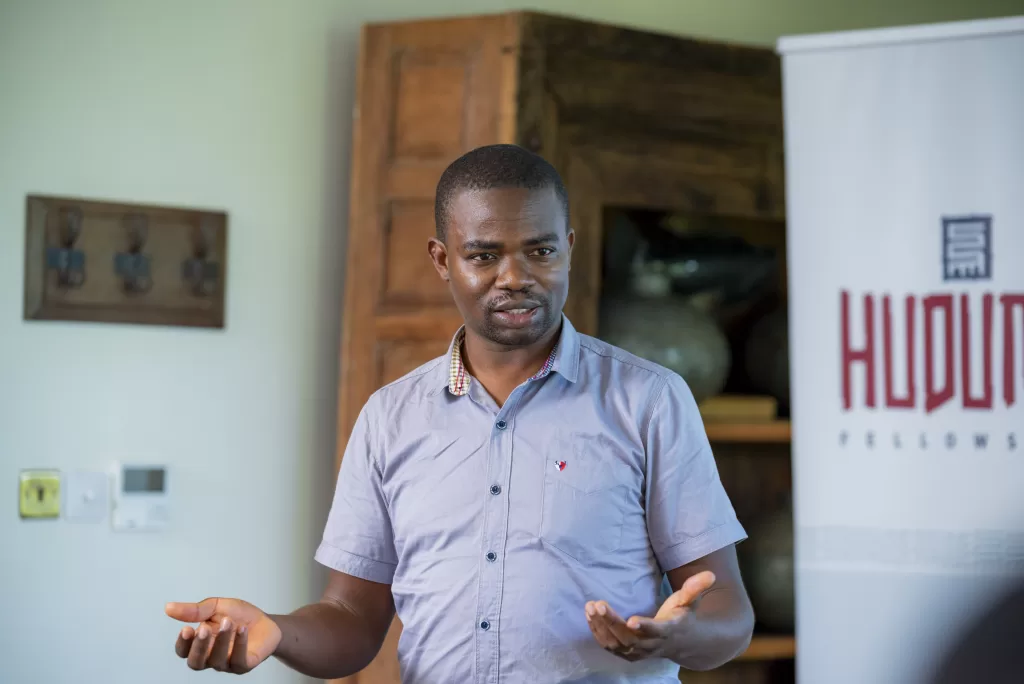
Authentic leaders are individuals who have high standards of integrity, take responsibility for their actions, and make decisions based on principle rather than short-term success. Components of authentic leadership include self-awareness, balanced information processing, authentic behavior, and relational transparency.
Ethical leaders are business leaders who demonstrate appropriate conduct. Components of ethical leadership include discipline, respect, humility, and honesty.
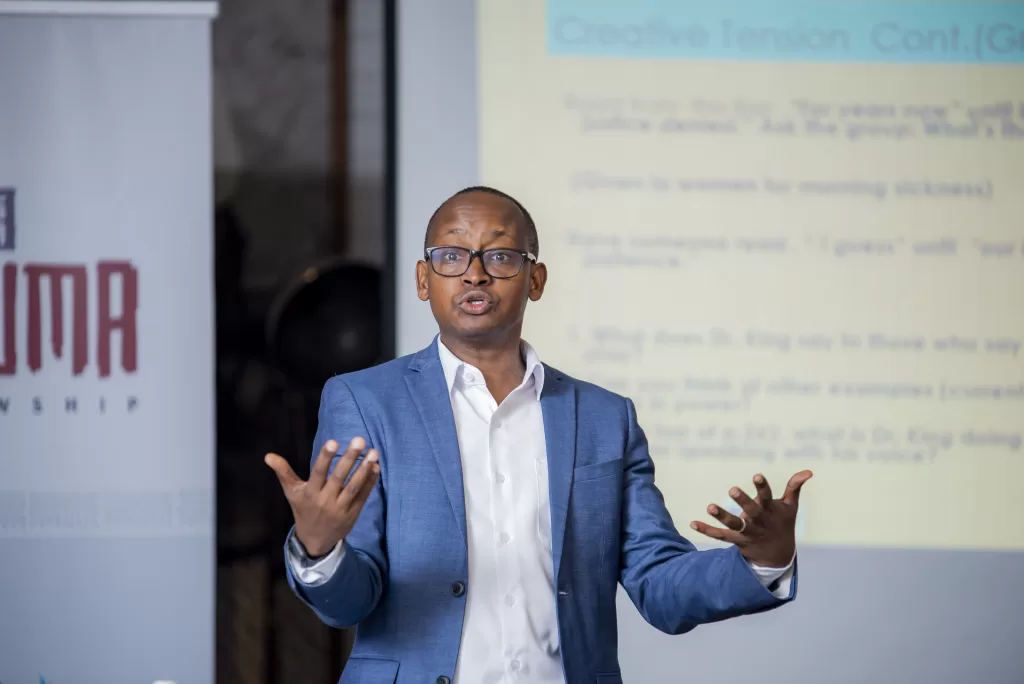
Mr. James Arinaitwe Kassaga the Founder of Teach for Uganda & Awel Uwihanganye led a thought leadership session on service in contributing towards building a “Good society.” For this session, fellows were grouped into five groups and shared their reflections on the Letter from the Birmingham Jail by Dr. Rev Martin Luther King. James argued that service is essential for creating a more just and equitable world.
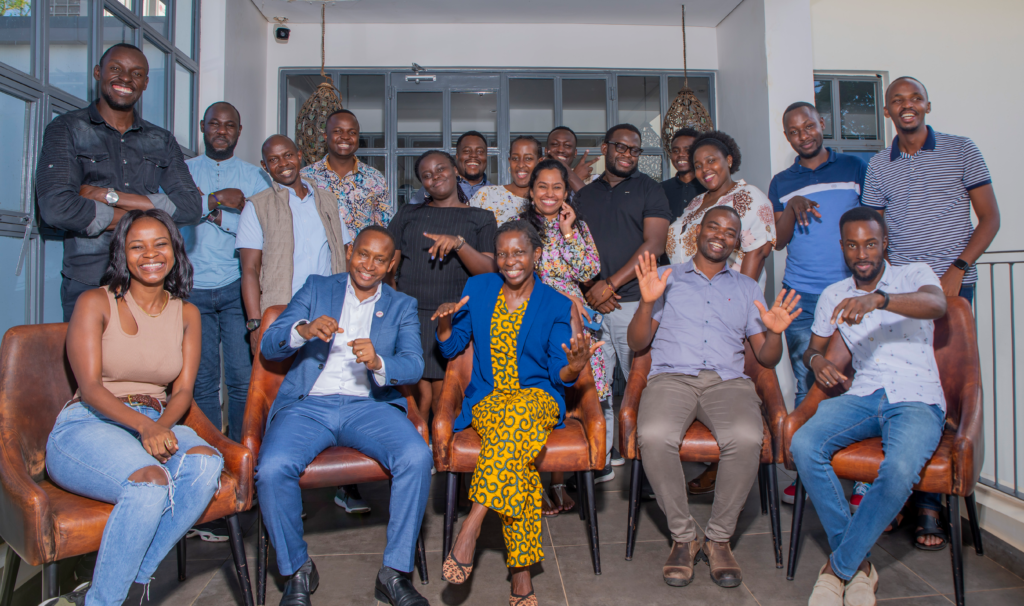
The seminar was a valuable opportunity for fellows to learn from a number of distinguished speakers and to reflect on the importance of leadership, public service, and service to others. The assessments revealed that the fellows found the seminar relevant to them in shaping their personal leadership.

